
by Christin Brown | November 30, 2023 | feature, News Releases
November 30, 2023 – Members of the Pennsylvania Senate Democratic Caucus, including Senator Vincent Hughes, Senator John Kane, Senator Christine Tartaglione, and Senator Lindsey Williams, issued a joint statement in response to the PA Supreme Court’s opinion that supports PennDOT’s jurisdiction to enforce the Prevailing Wage Act and their authority to disqualify G.O. Hawbaker Inc. from state roadwork contracts.
The four Senators are sponsors of Senate Bill 987, legislation that would require employers to notify workers about the illegal practice of wage theft, while also helping to protect workers who report it from retaliation.
“When our commonwealth goes into business with private organizations, Pennsylvanians deserve to know companies we contract with are the best of the best and operate themselves completely above board. We applaud the Pennsylvania Supreme Court for holding G. O. Hawbaker accountable for stealing money from employees. And we support PennDOT’s efforts to disqualify G. O. Hawbaker from future state projects.
Wage theft is a morally and financially abhorrent practice. Any employer found misappropriating employee pay and benefits should be forced to make their employees whole, as G.O. Hawbreaker was, and held to a different standard moving forward. These companies should not simply be allowed to resume business as usual after they exhibit such malicious intent and lack of respect for employees’ time and work.
Workers deserve the support and protections that have been affirmed by both the PA Supreme Court and PennDOT. Moving Senate Bill 987 and other Senate Democratic proposals to combat wage theft (like Senate Bill 46, Senate Bill 47, and Senate Bill 577), would be another tremendous step forward for workers in Pennsylvania.
We hope all companies take note of our fierce commitment to workers and the wages they are justly owed.”
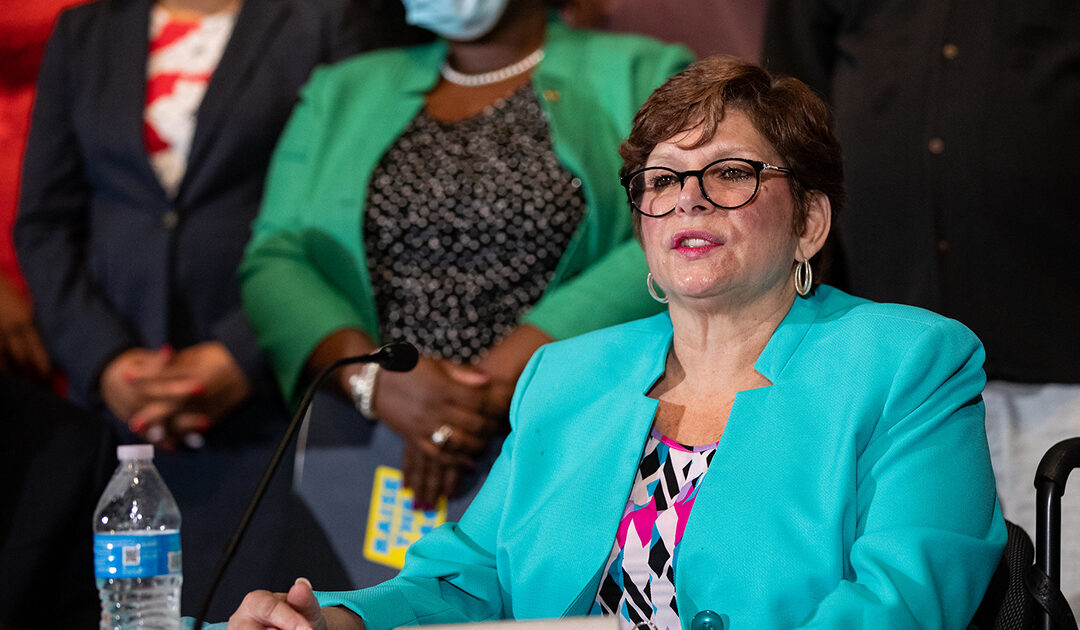
by Christin Brown | July 7, 2023 | feature, Minimum Wage, News Releases
Harrisburg, PA – July 7, 2023 − Sunday, July 9th, marks seventeen years since Pennsylvania lawmakers last raised the minimum wage.
 On July 9th, 2006, Governor Ed Rendell was joined by Senator Christine Tartaglione, Senator Vincent Hughes, and Senator Jay Costa, to sign Senate Bill 1090, Senator Tartaglione’s legislation that raised PA’s minimum wage to $7.15.
On July 9th, 2006, Governor Ed Rendell was joined by Senator Christine Tartaglione, Senator Vincent Hughes, and Senator Jay Costa, to sign Senate Bill 1090, Senator Tartaglione’s legislation that raised PA’s minimum wage to $7.15.
“When Senate Bill 1090 was signed into law in 2006, it was a promise to continue to fight for our Commonwealth’s lowest earners and ensure that the needs of Pennsylvanian’s lowest earners are never forgotten or cast aside,” said Senator Tartaglione. “I reintroduced Senate Bill 12 because I, like so many of my colleagues refuse to sit idly by as the Pennsylvanians that earn our poverty level minimum wage continue to struggle to make ends meet. Pennsylvania needs its government to act swiftly and decisively on behalf of our Commonwealth’s workers that need it most.”
Senate Democrats continue to support a higher minimum wage. In June, House Democrats passed a bill that would raise Pennsylvania’s minimum wage to $15 an hour by 2026. Senator Christine Tartaglione (D- Philadelphia) introduced Senate Bill 12, a similar bill.
“Pennsylvania is failing our workers,” said Senator Vincent Hughes (D-Phila./Montgomery). “For seventeen years now, Republican state lawmakers have done nothing to guarantee hard working people get paid fairly and adequately for contributions to our economy. I was proud to join Governor Rendell in 2006 to support pay that benefited workers and families. I hope to join Governor Shapiro one day to end seventeen years of inaction for minimum wage workers in Pennsylvania.”
Pennsylvania’s current minimum wage sits at the federal requirement of $7.25. According to the Massachusetts Institute of Technology (MIT), Pennsylvania’s minimum wage is far from a livable wage in the state. The cost of housing and other living expenses has continued to rise while Pennsylvania’s minimum wage has remained stagnant for over a decade.
A minimum wage increase to $15 an hour would impact one million workers who are currently making less than $15 an hour in Pennsylvania.
“Everyone who works for a living deserves to earn a living wage, and the current minimum wage in PA is not one. It is long past time to do right by our working families and make sure we can raise our children on one good job,” said Senator Jay Costa (D-Allegheny). “I have been proud to champion a living wage for every Pennsylvanian, and I look forward to working alongside fellow legislators, workers, and activists to deliver on this crucial value.”
Senate Democrats stand ready to vote on the House bill, but Senate Republicans, who are in the majority, must bring it to the floor for a vote. Meanwhile, every state surrounding Pennsylvania has raised the minimum wage. New York, New Jersey, Delaware, Maryland, West Virginia, and Ohio, all pay a higher minimum wage. Pennsylvania is in last place when it comes to delivering for workers.
“Raising the minimum wage is critical to respecting the dignity of hardworking people so that they can afford housing and food, and so that they don’t have to choose between food, heat, clothing, and other basic needs,” said Senator Art Haywood (D-Phila./Montgomery), who has also been a fierce advocate for raising PA’s minimum wage.
He continued, “This is about helping parents and allowing them to be parents, no longer having to work two or three jobs and having greater freedom to provide their children with a better education, enrich their young ones with opportunities like recreational activities, be more active in their communities, and spend time with their families.”

by Jessica Marpe | March 6, 2023 | News Releases
HARRISBURG, PA – March 6, 2023 – On Friday, March 3rd Senators Street, Schwank, Tartaglione and Hughes, reintroduced Sacred Spaces legislation, amending Section 3307 of Title 18 (Institutional Vandalism) to enhance the existing statute to give District Attorneys expanded options for combating vandalism of sacred spaces such as faith institutions, cemeteries, or memorials.
Senator Sharif Street shared that “at minimum, it is our responsibility as a government to ensure Pennsylvanians are free to express themselves, including their religious beliefs, without fear or risk of retribution. The continued defacement of places of worship is meant to intimidate whole communities and an inadequate response to these acts of hate inevitably results in more violent acts of intolerance.”
In recent years there has been an increase in the deliberate vandalism of churches, synagogues, mosques, and other places of worship by those who wish to express hate. On February 25, 2023, a “National Day of Hate” garnered significant attention and warnings from law enforcement about rising antisemitism and possible attacks on religious institutions across the United States.
Senator Judy Schwank stated that “Faith-based hatred and vandalism is deeply disturbing and has no place in the Commonwealth of Pennsylvania. Unfortunately, we’ve witnessed vandalism at religious and sacred spaces increase over the past few years. The protecting sacred spaces legislation we are introducing will send a clear message to those that wish to spread hate and intimidate other that they will be held accountable for their actions.”
In Philadelphia Jewish cemeteries have been targeted by vandals and on February 24th, 2023, the Philadelphia Masjidullah Mosque was defaced. On February 8th, 2023, in Reading, the Jesus is Alive World Center was severely damaged accruing more than $70,000 in repair costs. Religious intolerance, whether through rhetoric or acts of hate, have increasing consequences.
“In a state that was founded on the principle of religious liberty, it is abhorrent to see continued attacks and intimidation on and to our Commonwealth’s places of worship,” said Senator Tartaglione, “expanding the tools prosecutors across Pennsylvania can use to protect sacred spaces is a crucial step in combatting the hate we have seen grow out of the dark and dangerous fringes of society.”
Senator Vincent Hughes echoed that sentiment, stating “I’m proud to partner with my colleagues on this legislation, because acts of vandalism and hate against our sacred spaces have no place in Pennsylvania.”
###

by Christin Brown | May 25, 2022 | News Releases
HARRISBURG – May 25, 2022 – Today, Pennsylvania Senate Democrats wrote the following letter to Republican leaders in response to rampant gun violence and mass shootings that have become too common in the United States. Just this year, 215 mass shootings have taken place in the country, with the devastating shooting that occurred at Robb Elementary School in Uvalde, Texas on May 24, 2022, being the 215th.
In the letter, the caucus calls on the Republican majority to act on “reasonable and responsible legislation and appropriations” that does not infringe on Second Amendment rights but will help keep guns away from bad actors and support gun violence prevention. Senate Democrats list seven bills that have been introduced to mitigate gun violence but have sat in committee with no discussion or votes. They also highlight how American Rescue Plan dollars and Pennsylvania’s current budget surplus can be used to help communities prevent horrific violence.
 Loading...
Loading...

by Christin Brown | August 30, 2021 | feature, misc.
Harrisburg, PA − August 30, 2021 − The Senate Democratic Caucus sent the following letter to the Pennsylvania Supreme Court to encourage the court to take action to halt evictions for tenants who already have pending applications in the Emergency Rental Assistance Program.
 Loading...
Loading...

by Christin Brown | July 9, 2021 | Minimum Wage, News Releases
PHILADELPHIA, July 9, 2021 – On the 15th anniversary of the signing, state Sens. Vincent J. Hughes and Christine M. Tartaglione today marked the enactment of Pennsylvania’s last minimum wage legislation with a reenactment and rally with state leaders at the site of the 2006 ceremony.
Hughes and Tartaglione were joined by Gov. Tom Wolf, former Gov. Ed Rendell, U.S. Rep. Dwight Evans, and House Democratic Leader Joanna McClinton along with House and Senate Democrats to remember the fight to get Senate Bill 1090 passed and to recognize the leaders who continue to speak out against poverty wages in Pennsylvania.
“My landmark 2006 minimum wage bill represented what intelligent, conscientious legislators with contrasting points of view can achieve when we dedicate ourselves to finding common ground. We fought and clawed our way through misinformation, dubious studies, and corporate greed to deliver relief for 400,000 Pennsylvania workers and their families,” said Tartaglione, who was the author and prime mover behind Senate Bill 1090 (Act 112) in 2006. “But now that widely-celebrated legislation is a glaring example of how far we have fallen behind our neighbors and our nation. The time to correct this economic and moral failure is now.”
Hughes, who sat with Tartaglione and Gov. Ed Rendell for the 2006 signing at Sharon Baptist Church, said the bill proved the skeptics spectacularly wrong.
“We were told Senate Bill 1090 would cost jobs. We heard dire predictions and gloomy warnings and fake reports from the business lobby,” Hughes said. “None of it was true. Poverty shrunk. Jobs grew. Thousands of Pennsylvanians saw their buying power rise to where it was a decade earlier. You can’t tell us we can’t afford to pay better than poverty level wages. We know better.”
Act 112 raised Pennsylvania’s minimum wage from $5.15 to $7.15 over two years before the federal government raised the current rate to $7.25 where it has remained. A Pennsylvania Department of Labor and Industry report compiled after the increase showed it was broadly successful at raising wages and predictions of job loss were met with thousands of jobs gained in sectors that employ minimum wage workers.
“The fact that Pennsylvania’s minimum wage hasn’t increased in 15 years is an embarrassment,” said Gov. Wolf. “It’s an insult to hardworking Pennsylvanians who are doing the same amount of work, but finding that their paychecks cover less and less every single year. The Republican majority in the General Assembly refuses to do the right thing for workers in our state. Our minimum wage is leaving Pennsylvanians behind, and that’s just wrong.”
Tartaglione has continued to offer new minimum wage bills that have not been moved by the Senate majority.
“It is an absolute travesty and an insult to workers everywhere that other legislators have been blocking Pennsylvanians from raising the minimum wage for 15 years. 15 years!” said Sen. Tim Kearney, who spoke at the rally urging a full Senate vote on a minimum wage update.
Tartaglione’s current bill, Senate Bill 12, would raise the minimum wage to $15 in a series of increments over six years. It remains idled in the Senate Labor and Industry Committee.
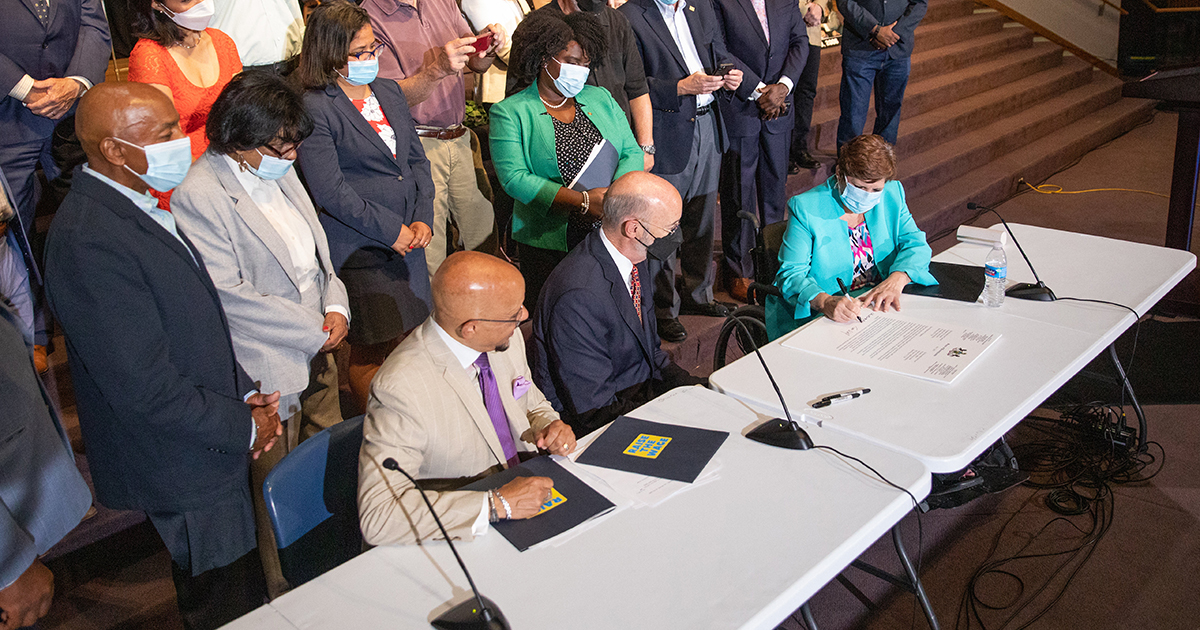 Participants at the rally signed a letter to Senate majority leaders asking for a vote and predicting it would pass if allowed on the floor.
Participants at the rally signed a letter to Senate majority leaders asking for a vote and predicting it would pass if allowed on the floor.
“The minimum wage is nowhere near a livable wage,” said Sen. Amanda Cappelletti, who represents parts of Delaware and Montgomery counties. “In my district, there is no affordable housing available for those making at or near our current minimum. It is past time to do something about it. We must raise it immediately.”
Sen. Katie Muth, who represents parts of Montgomery, Chester and Bucks counties called the current minimum wage “shameful” and said its value would be far higher if adjusted to make up for decreasing buying power.
“I encourage those who oppose increasing Pennsylvania’s minimum wage rate from the shameful poverty rate of $7.25 an hour to try it for themselves with an annual salary of less than $15,000 after taxes,” she said. “In Pennsylvania, it costs roughly $59,340 for a family of four to afford basic needs. Had the minimum wage increased at the rate of productivity since the early 1960’s, it would be around $22.50. Income inequality is preventable and those with the majority power in Harrisburg have been holding hardworking Pennsylvanians hostage with their inaction.”
To view the full event, visit here. FTP link available upon request.
###
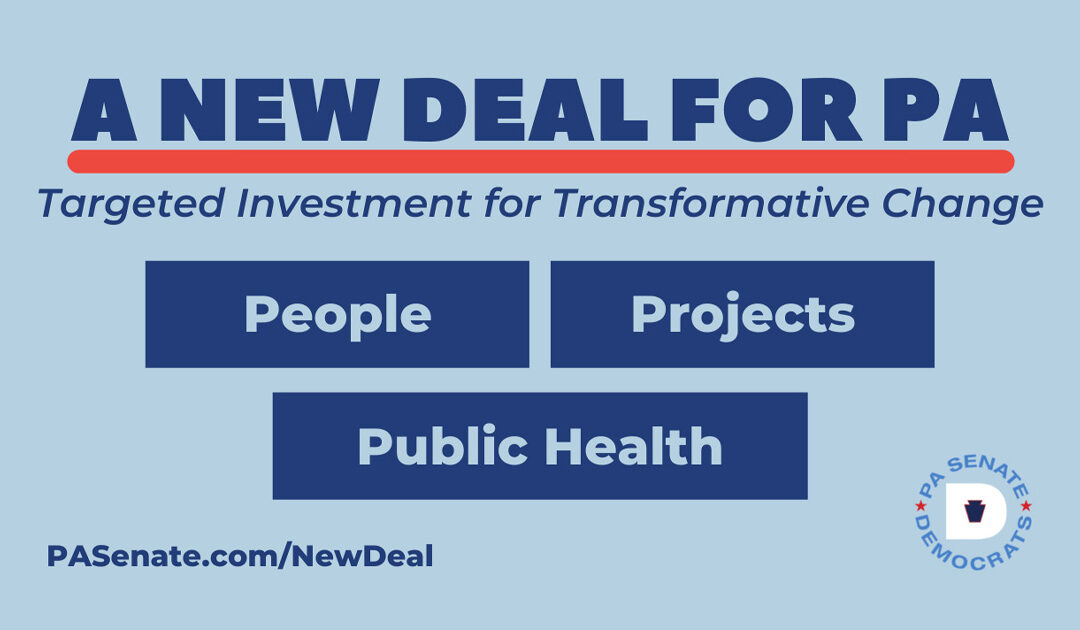
by Christin Brown | May 12, 2021 | News Releases
Harrisburg, Pa. – May 12, 2021 – Today, Pennsylvania Senate Democrats unveiled the “New Deal for PA” – a $6.15 billion investment of federal funds coming to the Commonwealth pursuant to the American Rescue Plan.
The New Deal for PA focuses on Jobs, Opportunity, and Equity with the following breakdown:
People — $2.470 billion
21st Century Child Care
Business Assistance
Education/Community Supports
Job Training/Workforce Development
Utility Assistance
Projects — $2.493 billion
Economic Development
Infrastructure
Public Health — $1.185 billion
Public Health Equity/Vaccine Confidence
Rewarding Frontline Worker Service
“These funds give us a unique opportunity to not only plug the holes created by the past year, but to also set us on a trajectory that will prevent such devastation from happening again – particularly as it relates to the disproportionate impact some communities faced,” said Senate Democratic Leader Jay Costa. “We have to move beyond calls to simply ‘reopen’ and focus instead on rebuilding and recovering. Our businesses, workers and families need programs and support systems to get to a new normal.”
By making targeted investments in people, projects, and public health, we can use this once-in-a-lifetime infusion of federal funds into PA to make positive, long-lasting improvements that will lay the foundation to create transformative change across the Commonwealth.
“This plan which creates jobs and opportunity, and prioritizes equity, is the result of a long, difficult year of listening and learning,” Senate Democratic Appropriations Chair Hughes said. “Thousands of Pennsylvanians have taken time during the pandemic to tell us their stories, their challenges and their tragedies. We now have a historic opportunity to apply the lessons learned not just from the virus, but also from the decades of regressive public policy that left so many so vulnerable to it. In short, this plan puts PA’s people first.”
The New Deal for PA uses a data-driven approach to respond to what we learned during the pandemic.
The caucus looked at the current situation to determine where financial assistance is still necessary to help individuals, families, and small business recover from the devastating impacts of the pandemic. Then, the caucus looked ahead and assessed how to best invest ARP funds to ensure that we come out of the pandemic better than we went in and build resiliency across the commonwealth in preparation for the next crisis.
Finally, the caucus compared its proposal with the U.S. Treasury guidance released on May 10, 2021, to ensure we are on solid footing in using the funds as we propose.
Federal guidance on allowable uses of the funds coming to Pennsylvania from the American Rescue Plan’s (“ARP”) State Fiscal Relief Fund was released on May 10, 2021. Pennsylvania will receive approximately $7.3 billion in flexible funding from the State Fiscal Relief Fund. Senate Democrats believe it is time to begin the conversation on investing these funds so we can allocate the monies with the FY 2021-2022 budget
The Senate Democrats’ proposal distributes $6.05 billion from the following sources:
State Fiscal Relief Fund — $4,797,500,000
Capital Projects Fund — $280,000,000
ESSER Fund — $505,000,000
Emergency Assistance for Nonpublic Schools — $150,000,000
Pandemic Response Fund — $25,000,000
Other Funds — $55,000,000
Local Matching Funds — $335,000,000
Counties and municipalities will receive approximately $6.1 billion from the American Rescue Plan’s Local Fiscal Relief Fund and school districts will receive approximately $4.5 billion from the ESSER Fund. If these local government units take advantage of these programs, state matching funds will average approximately $4 for every $1 of local funding.
The Senate Democratic Caucus plan targets investments to craft a just recovery so Pennsylvania can Build Back Better.
More information on the plan can be found at PASenate.com/NewDeal
###

by Christin Brown | June 8, 2020 | News Releases
HARRISBURG – June 8, 2020 – Members of the Pennsylvania Senate Democratic Caucus announced the direction of $225 million in federal CARES Act funding to aid small businesses across the commonwealth. This funding was authorized by the recently enacted COVID-19 Emergency Supplement to the General Appropriation Act of 2019 and was a centerpiece of the caucus’ PA CARES Plan.
The aid will be distributed as follows: $100 million is set to go to the Main Street Business Revitalization Program, $100 million to the Historically Disadvantaged Business Revitalization Program, and $25 million for loan payment deferment and loss reserves for loans impacted by COVID-19. The aid will be directed by the Department of Community and Economic Development to Community Development Financial Institutions (CDFI), which are intimately familiar with the needs of the most vulnerable small businesses in our communities.
“I want to thank Governor Wolf for engaging leadership in the General Assembly to inform the process of moving federal aid out to those who have been most harmed by the COVID-19 pandemic. I also want to thank the leadership of the Senate Democratic caucus who worked with our members to formulate a strategic plan for the deployment of nearly $4 billion in federal assistance,” said state Senator John Blake (D-Lackawanna). “The Main Street Business Revitalization program is a reflection of that cooperation and leadership and it will meet Pennsylvania’s small business owners where they are, on Main Street, after nearly three months of lost or no sales. It will enable small business owners throughout the commonwealth to meet their insurance payments, rents, health insurance premiums, local taxes and other expenses that they otherwise could not meet due to lost sales. Finally, I want to thank the 17 CDFIs throughout the state as well as DCED for their professionalism, agility, urgency and dedication to getting this federal funding to the small businesses who need it most as quickly as possible.”
Eligible businesses will apply through one of the CDFI Network partners and will have to have been operating on or before February 15, 2020, and must have paid taxes to state and federal governments. Qualifying main street and historically disadvantaged small businesses must have 25 or fewer employees and experienced losses as a result of Gov. Tom Wolf’s March 19 stay-at-home order. Organizations seeking grants from the historically disadvantaged small businesses program must also be 51 percent owned and managed by socially and economically disadvantaged individuals.
“The announcement of the Main Street and Historically Disadvantaged Business Revitalization Programs will provide welcomed relief for mom and pop businesses in neighborhoods across the commonwealth,” said State Senator Vincent Hughes (D-Philadelphia/Montgomery). “Since this pandemic began, we have heard the needs of the auto body shops, the barbershops, the beauticians, the pizza shop owners, the soul food establishments and other businesses in our communities. The needs of these businesses that were unable to get much needed help from other state and federal programs were a priority in our Senate Democratic Caucus’ April 29 PA CARES Program announcement. For months, my office has worked with a network of trusted community organizations that have a proven track record of working with our small CDFIs to find a solution to assist our neighborhood businesses. I believe these programs are that solution. There is still more work to be done, but these programs are a win for Pennsylvania and its small businesses.”
Businesses will be eligible for up to $50,000 in grants. Grants can be used to cover operating expenses during the shutdown and in the transition period to reopening, technical assistance and training, debt payment relief for CDFI borrowers and loan loss reserves.
“Our small businesses all across the state made sacrifices so that we could flatten the curve of COVID-19 and save lives,” said Senate Democratic Leader Jay Costa, Jr. “Now as we begin to recover, our businesses will need and deserve assistance to reopen their doors, rehire their staff and serve our communities again. We thank them for their patience through this difficult time, and are ready to offer the programs, loans and assistance they need.”
Businesses will be required to submit proposals for review documenting sales losses, projected revenues, the duration of closure as a result of COVID-19, and relief receipts for other federal, state and local government aid. Eligible businesses will apply directly through a local CDFI.
“One of the goals of the pandemic-recovery stimulus plan that I offered in March, was to jump-start business operations and speed the economic recovery by making resources readily available to get more men and women back to work quicker,” Brewster said. “Using federal CARE dollars to bolster business and smooth the back-to-work transition is critically important. The caucus CARES initiative includes one piece of the plan and will be especially useful to small businesses as they cover expenses and manage start-up costs. Plus, it will usher in help for small businesses who may not have been able to access other state or federal business assistance programs.”
Distributed funds will be monitored by DCED to track the total number of grants awarded under these programs including county, the number of jobs saved by the grants, the total amount of loan payment and deferment, administrative costs and more.
“Thank you to Governor Wolf and his administration for recognizing the need for our Main Street Business Revitalization Program and incorporating that proposal into the Commonwealth’s plan to support our small businesses, which represent nearly half of the private sector workforce in Pennsylvania – 2.5 million jobs,” said Senator Iovino (D-Allegheny/Washington). “Small businesses are the job creators in our communities, the revenue generators for our Commonwealth, and the cornerstone of vibrant main streets. As small business owners are struggling to hang on, this $225 million grant package is exactly the kind of lifeline that these economic drivers need to support our recovery.”
For more about the caucus’ comprehensive, people-focused COVID-19 recovery plan, visit pasenate.com/pacares.
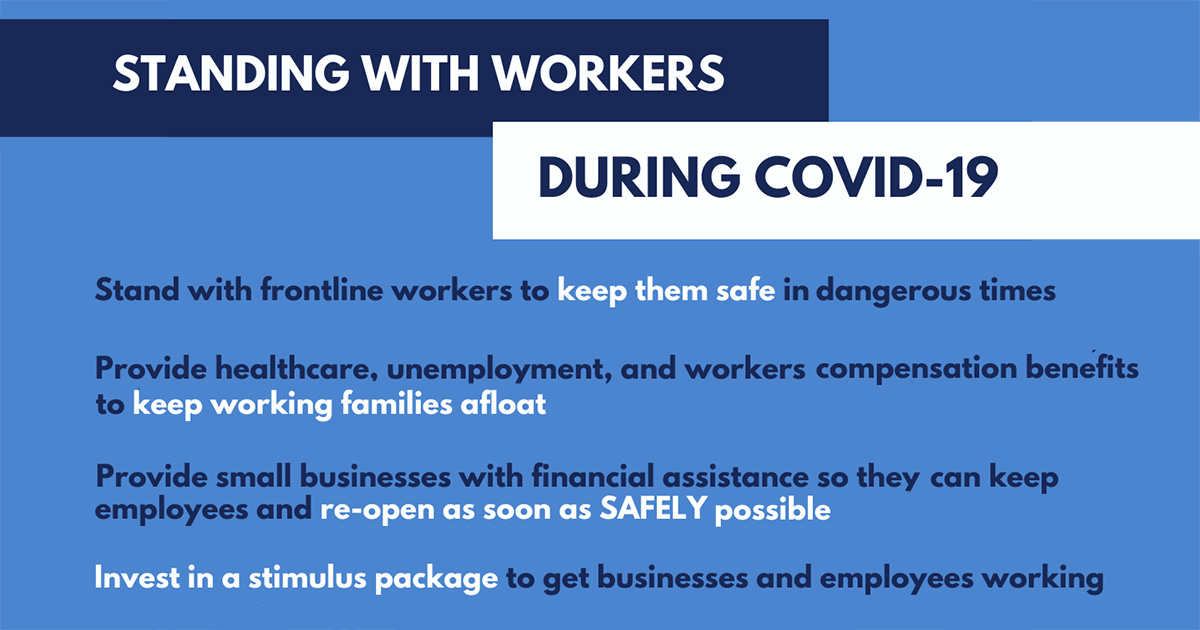
by Christin Brown | April 8, 2020 | News Releases
Harrisburg, PA − April 8, 2020 − The Senate adjourned Tuesday afternoon after the House Republicans indicated they would not be taking up Senate Bill 841, legislation that would have enabled local municipalities to hold their meetings remotely, permitted e-notary use; lengthened the time period a property tax payer can receive an early payment discount and delay penalties for late payments to Dec. 31st; and allowed businesses to make delayed payments on EITC. Another important amendment offered by Senator Pam Iovino (D-Allegheny) allowed school districts to renegotiate contracts to ensure contracted school workers can get paid and continue to receive benefits.
The amended SB 841 passed the Senate with bipartisan support. While the Senate Democrats and Republicans chose to put partisan difference aside, the House Republicans were pushing to please special interests and big donors. Intending to use this crisis as leverage, Speaker Turzai and his caucus passed legislation to prematurely allow businesses to reopen during this public health crisis and create a partisan task force to interfere with the Governor’s disaster response, both of which unnecessarily risk lives and threaten to expend the emergency.
“While the Governor and Department of Health Secretary offer leadership on public safety in daily briefings and Democratic members of the PA House and Senate draft legislation to protect working people who are either out of work or employed on the front lines of essential businesses, Republicans are putting lives at risk and undermining the Governor and Secretary Levine’s best efforts to end this crisis,” said Senate Democratic Leader Jay Costa, Jr. “Instead of taking the advice of our Health Secretary, they are trying to slow down our response and hasten the re-opening of non-essential businesses against the guidance of every public health entity in the country.”
The House Republicans were seeking even more egregious measures to provide civil immunity to big businesses, upend school districts ability to pay their teachers, and leave our corrections department employees at serious threat of the Coronavirus. Perhaps worst of all, the language does nothing to protect frontline workers, provide assistance to those that are out of work, or to help small businesses weather this crisis.
In an amendment to Senate Bill 327, House Republicans designed a task force with partisan appointees to usurp the Governor’s ability to rapidly respond to this quickly-evolving crisis. Their bill would require the Secretary of Health to leave PEMA, take hours away from public health crisis planning and defend her work in front of a redundant, political body.
The Senate Democratic Caucus will not support these bills. Alternatively, this caucus will be supporting legislation on the following issues:
- The American Working Family Relief Action Plan for front-line worker protections (Collett/L. Williams)
- Protecting workers during public health emergencies (Santarsiero)
- COVID-19 Food Worker Safety Act (Tartaglione)
- COVID-19 Grocery Store Worker Safety Act (Tartaglione)
- Payment of contract services in schools (Iovino)
- Childcare assistance (Schwank/L. Williams)
- Emergency expansion of the Family Medical Leave Act to provide paid sick leave (Farnese)
- Crisis grants for volunteer fire and EMS companies due to COVID-19 (Brewster)
- Require business interruption insurance to cover COVID-19 related business closures (Hughes)
- Eviction protection for all disaster emergencies (Farnese)
- Coronavirus disease and schools: allowing for online instruction (Dinniman)
- Creating a Common Wealth Fund to collect donations from individuals to provide for essential needs of those in need (AH Williams)
- Providing a presumption of eligibility for Workers’ Compensation benefits for workers that get sick in the workplace (Tartaglione)
- Ensuring receipt of a stimulus check from the Federal government is not included in an individual’s income for purposes of qualifying for social safety nets (Schwank)
- Exempting stimulus checks from the Federal government from State and local taxation (Brewster)
- Collaborating with financial institutions to mandate mortgage loan forgiveness, assistance to homeowners that were laid off due to state emergencies (Farnese)
“While many working Pennsylvanians are suffering from the COVID-19 pandemic, facing lost hours or even complete unemployment, others who find themselves in more fortunate circumstances have expressed a desire to help their fellow citizens by either donating to a local charity or patronizing local businesses,” said Senator Anthony H. Williams. “By establishing the “Pennsylvania Common Wealth” restricted account, taxpayers could redirect all or a portion of their stimulus check to the state, which in turn would be authorized to direct those funds into programs which help the neediest Pennsylvanians – property tax & rent rebates, temporary assistance for needy families, CHIP or medical assistance.”
“Pennsylvania needs solutions that help protect its working people who have been hit the hardest by the fallout of the coronavirus pandemic,” Senator Vincent Hughes said. “We in the Pennsylvania Senate Democratic Caucus have put forth a number of policy proposals that would do just that, meanwhile House Republicans have chosen to ignore these needs and push an agenda that jeopardizes public health and puts additional pressure on working people by delaying immediate relief. Our mission should be helping people in this unprecedented time of need and we will remain vigilant in protecting hardworking folks across the commonwealth.”
“As public servants, our most important duty is to protect the health, safety and welfare of our citizens. This includes making difficult decisions in challenging times. We all want businesses to reopen, employees back on the job, students back in classrooms and some semblance of normal life to resume, but that cannot happen unless we first continue mitigation efforts and follow the advice of our scientists and experts,” said Senator Wayne D. Fontana. “Anything contrary can set back progress and cause further harm on our economy and most importantly, on human health. The bipartisan legislation the Senate approved provides some necessary guidance and relief to local governments, businesses, school employees and property taxpayers during this unprecedented situation. It is unconscionable that House Republicans blatantly disregarded that duty and have chosen not to act.”
“The spread of coronavirus has not quieted the voice of special interests in Harrisburg and that’s tragic,” said Senator Larry Farnese. “Mitigation through isolation is working and we have to recognize that sacrifice through legislation that actually helps front-line workers instead of just saying nice things on social media.”
“This crisis and the Commonwealth’s response to the COVID-19 pandemic requires leadership, transparency and cooperation – not partisan politics,” said Senator John Blake. “While we’ve worked well with the Senate majority on real solutions that actually help people in this crisis, the House majority looks to undermine the executive authority of the Governor as well as the advice of medical and scientific experts regarding public health. I applaud the work being done by Governor Wolf and his administration to keep Pennsylvanians safe and to mitigate the spread of COVID-19. I will continue to support important legislation to help our business community, front-line workers and medical professionals; and to protect our citizens, schools and local governments across this state. We need to remain vigilant in following the recommendations of the PA Department of Health and the federal CDC.”
“Issues that the Commonwealth was already facing have been exacerbated by this pandemic, and child care services and early learning programs are near the top of the list. Childcare centers are teetering on the brink of insolvency, which is why part of our legislative package addresses early childhood learning and safe, quality childcare. We will not be able to restart Pennsylvania’s economy without this key component,” Senator Judy Schwank said. “Additionally, it’s vital that the income requirements of state programs like PACENET and Property Tax and Rent Rebate are adjusted so that Pennsylvanians receiving federal aid are not penalized later.”
“The key to an effective response to the pandemic is to ensure that our citizens are protected, health risks are addressed, and our economy restarts quickly,” Senator Jim Brewster said. “That’s why I introduced a six-point stimulus plan that will help small business, protect workers and create jobs once we are clear the threat posed by the pandemic. In addition, we need to make sure to address the immediate and long-term needs of first responders and all workers and businesses who are providing essential services during this time of extraordinary stress.”
“There is no segment of our Commonwealth that hasn’t been upended by this crisis. Everything is a priority. But in order to save livelihoods, we must first save lives,” said Senator Maria Collett. “As a nurse, I know firsthand the challenges our health care workers are up against and the urgency of passing legislation like the American Working Family Relief Action Plan for Front-Line Workers. Our doctors, nurses, first responders, senior care aides and others should not have to worry about getting sick or infecting others while performing their essential work.”
“It is irresponsible for the state to reopen businesses at the height of the COVID-19 outbreak. Those who are not essential workers should remain home,” said Senator Art Haywood. “We need to do all we can as legislators to support essential employees risking their lives on a daily basis,” said Senator Haywood (D-Montgomery/Philadelphia). “I will continue to support the work Governor Wolf and Secretary Levine have done to inform the public to remain safe and stay home.”
“The citizens of Pennsylvania are counting on their elected representatives to save lives by responding swiftly, pragmatically, and in a bipartisan manner to slow the spread of this highly contagious virus,” said Senator Pam Iovino. “To fulfill our duty to the public, we must follow the consensus guidance of public health professionals, focus on protecting front-line essential workers, and put in place protections that allow furloughed or unemployed workers and small businesses to weather the economic disruption.”
“As the Democratic chair of the Local Government Committee, I worked with stakeholders for weeks to craft the provisions of SB 841, I am disappointed these commonsense measures, which passed the Senate with bipartisan support, are being held up by House Republicans for little reason,” said Senator Tim Kearney. “The House should immediately pass SB 841 and focus on bringing relief to Pennsylvanians, rather than sabotaging the Governor’s efforts to keep our families safe.”
“Yesterday, the majority party in both chambers failed to use their legislative power, where they can literally pass any bill they want to, and instead decided to pack up and go home without,” said Senator Katie Muth. “Failing to pass meaningful bills when people are fighting for their lives is simply negligent.”
“Now is not the time to play politics,” said Senator Steve Santarsiero. “Saving lives has to be the first priority. In order to do that, we must all do our part and follow the Governor’s and Department of Health’s plans as they’ve been explained to us countless times. SB 841 is just one of many ways our caucus has worked in a bipartisan effort to provide relief to those who need it most. However, SB 327 is exactly what our healthcare professionals warn us against. Promoting a premature return to normalcy will only undermine our effort to keep the public safe, and further endanger thousands of lives.”
“Government’s most important role is the protection of its people. Since the COVID-19 crisis the Senate has met three times, with little to show for it. Communities across the commonwealth have no interest in the paralysis of government especially in the most desperate of times. What they do care about is the protection of our essential workforce, the interruption of our small businesses, job loss, staying in their homes and educating their children. The only thing that matters is the preservation and protection of every resource needed to keep families safe during this health crisis,” said Senator Sharif Street.
“We need to be back in Harrisburg, we need to get back to work. We must work together to ensure our communities are protected during uncertain times.”
“As thousands of Pennsylvanians continue to get sick and hundreds die, now is no time to play partisan politics,” Senator Tina Tartaglione said. “As public leaders, we must unite behind the common goal of reducing the threat of this virus and mitigating the harm being done to our constituents. The package of bills we have proposed will directly help all Pennsylvania families, including essential workers, displaced workers, first responders, school children, those who have become sick, and those in need. I urge all legislators from all political parties to support these bills.”
“Stopping the spread of COVID-19 and saving lives is our top priority. We also need to protect and support our constituents, our communities, and our businesses,” said Senator Lindsey Williams. “Our front-line essential workers – our hospital workers, grocery store workers, emergency service personnel and others – cannot afford to wait for PPE. They needed it weeks ago. Our childcare facilities need our help to stay open and provide care to the children of our essential workers while they risk their lives for us. Our small businesses need financial support to stay afloat. Our municipalities need the ability to meet remotely and make decisions that will ensure the safety of all of residents. There are a lot of needs right now and our constituents do not have time for us to waste playing partisan games or naming bridges. The Senate Democrats have offered concrete solutions that will help people. We should all be working together to get them to the Governor’s desk for signature as soon as possible.”
More information on the work of the Pennsylvania Senate Democratic Caucus during the COVID-19 crisis can be found at pasenate.com/covid19.
###
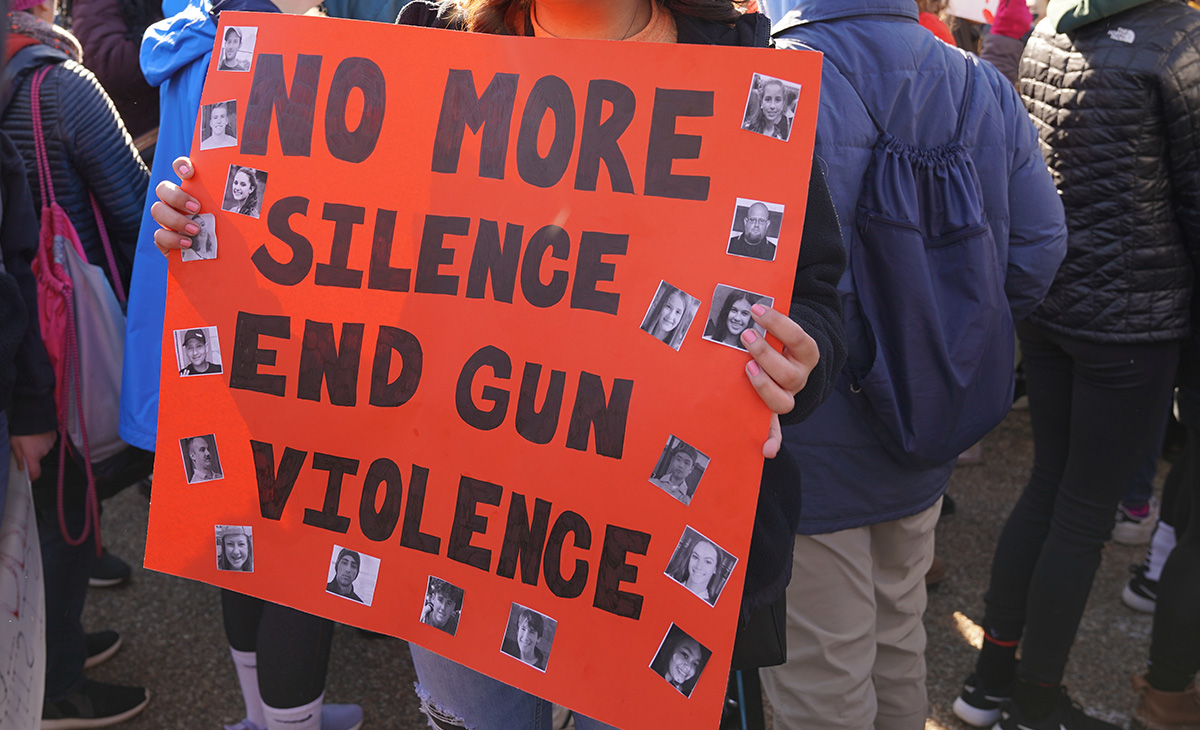
by Christin Brown | June 24, 2019 | News Releases
Harrisburg, Pa. − June 24, 2019 − Members of the Pennsylvania Senate Democratic Caucus today jointly sent a letter to Governor Tom Wolf requesting a disaster declaration for gun violence in the Commonwealth.
“We believe it is necessary to raise the public’s awareness of the massive loss of human life and the suffering inflicted on affected family, friends and neighbors where this tragedy is unfolding daily,” they wrote. “Just as you have signed six disaster declarations to provide every tool at the Commonwealth’s disposal to combat the opioid epidemic, the death toll and impact from illegal guns should merit immediate and coordinated attention.”
Specifically, a disaster declaration could do the following:
- Establish a task force led by the Department of Health to create and implement a public health framework for addressing gun violence
- Establish a command center in the Pennsylvania Emergency Management Agency to coordinate state and local law enforcement response
- Enhance the Joint-Local State Firearm Taskforce through additional personnel and funding to take illegal guns off the street
- Expand information gathering and sharing between all levels of law enforcement and community groups
- Increase law enforcement presence, both local and state, in targeted areas where gun violence is most prevalent
- Expedite and expand grants and other funding sources for community groups and nonprofit associations with a proven record of violence reduction and prevention
- Provide additional state resources for behavioral and mental health
- Bringing to bear the significant wealth of knowledge and experience in the Departments of Health and Human Services to provide de-escalation and de-confliction training throughout the community
- Require the Pennsylvania Department of Education provide training and professional development on trauma-informed education
View full letter →
###

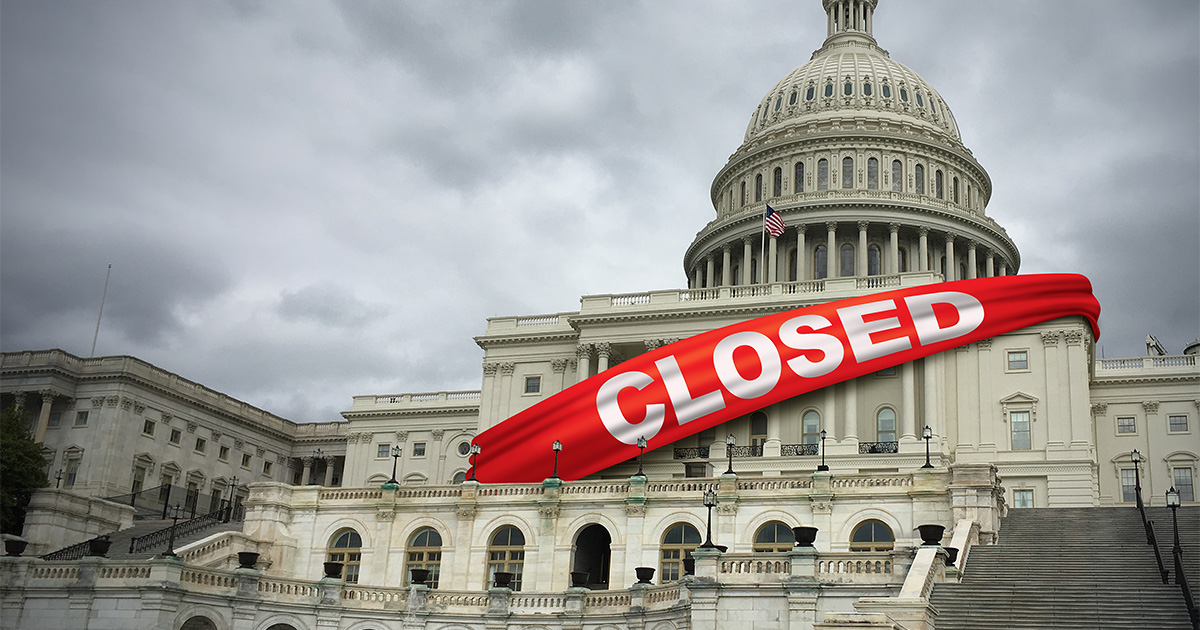
by Christin Brown | January 10, 2019 | News Releases
Harrisburg, PA – January 10, 2019 – On behalf of the 12,000 Pennsylvania federal employees, contractors and subcontractors who are not receiving a paycheck during the partial federal government shutdown, Senator Vincent Hughes (D-Philadelphia/Montgomery), Senator Christine Tartaglione (D-Philadelphia), Senator Sharif Street (D-Philadelphia) and Senator Jay Costa (D-Allegheny) are taken steps to help those in need.
After hearing reports from constituents facing financial hardships during the shutdown, the senators wrote the 10 largest banks, relative to number of branches, in Pennsylvania. Their hopes are to share information about banks’ existing assistance programs or to spur action on behalf of working people with banks that have not addressed the issue.
“Ten years ago, we bailed out failing banks during a recession and now it is time to help working people during their financial crisis,” Sen. Hughes said. “These hard-working folks are suffering through no fault of their own. The least we can do is get them help until are get paid again.”
Motivations for the letter came from the senators understanding that 78 percent of U.S. workers live paycheck to paycheck and there are no furloughs for essential expenses. Mortgages, rent, groceries, car payments and other bills must be paid whether the government is functioning.
“We cannot stand by and do nothing while these federal employees are left without paychecks,” said Sen. Costa. “These are folks ready and willing to work in service of the federal government, but now face eviction and piling bills. I hope that financial institutions are willing to step up to help them, and I’ll do everything in my power to ensure these federal employees are not punished for this shutdown.”
In total, there are 62,000 federal workers in Pennsylvania and about 12,000 who are furloughed or working without pay. Nationally 800,000 federal employees have had their jobs disrupted, with 380,000 furloughed or sent home without pay. These figures speak to an economic crisis that must be addressed, the senators said.
“As the stalemate in Washington is about to enter its fourth week, thousands of hard-working Pennsylvanians are suffering a very heavy burden,” Sen. Tartaglione said. “I can’t think of any greater commitment to purpose and level of professionalism than we are seeing from those who want to work, but can’t, and from those who continue to work, but aren’t receiving their just compensation. It is imperative that we do all we can as a community to support them in their time of need.”
Rallies and protests across Pennsylvania also drew the attention of the senators who have made the fight for working people a central issue. Pennsylvania’s furloughed federal workers not receiving paychecks include TSA officers, federal prison workers, national park workers and employees of the Environmental Protection agency.
“The financial strain placed on federal government employees, contractors and subcontractors in the commonwealth continues to grow,” Sen. Street said. “This is a heavy burden on individuals and families who they cannot endure such hardships for an extended period of time. Banks have an opportunity to mitigate these hardships and must help the people. As the Democratic chairman of the Banking and Insurance Committee, I encourage the banks to act with urgency in this regard.”
The full letter to the banks can be found here.
###
by Christin Brown | November 18, 2016 | News Releases
Harrisburg – November 18th, 2016 – Senators Vincent Hughes and Christine Tartaglione issued the following statements on the failure of the Pennsylvania Senate to extend funding for Labor & Industry service call centers:
Senator Hughes: “I am outraged by the failure of the Pennsylvania Senate Republican leadership to hold a vote to extend funding for unemployment compensation service call centers. Because of this inaction, nearly 600 working people will lose their jobs just one week before Christmas. It also means that thousands of unemployed Pennsylvanians will experience longer wait times when seeking assistance while applying for benefits.
“We must be clear that was a choice made by Senate Republicans for political reasons. They control the Senate calendar and Governor Wolf and Senate Democrats made it clear throughout the fall session that this bill was a priority. The bill should have been voted on October 26 but it was delayed when the Republican pension plan fell apart. Then, on our final session day Wednesday, the bill was marked for a vote but was pulled again after their plan to further limit a women’s right to make her own health decisions failed. Because they twice didn’t get what they wanted, Senator Scott Wagner decided to play Scrooge to 600 workers who will lose their jobs just one week before Christmas.
“The inconsistency in public statements by Senate Republicans is clear proof that this failure to act is pure politics. First, the Senate Republicans tried to blame Governor Wolf even though they control what bills we consider in the Senate. Then, Senator Wagner openly admits that he wanted to cut funding to these call centers and see them shut down. They can’t have it both ways.
“Republicans also cannot simultaneously claim to be the champions of the working class and force the closure of facilities that help people who are unemployed. I call on the Senate Republicans to immediately reconvene the Senate to pass an extension of funding to unemployment compensation service calls centers.”
State Senator Christine Tartaglione, Democratic Chairwoman of Senate Labor & Industry Committee, offered the following statement:
“I join my colleague in calling for Senate Republicans to move on this important issue. I have been calling for the funding to be restored to these calls centers as one of my top priorities for the entire legislative session and offered my own bill, Senate Bill 1335 that would have reauthorized this funding for an additional four years. It is important to realize that this money is available, it simply needs to authorized. There is no reason that the Senate should not have acted to prevent these layoffs. Now, nearly 600 workers will lose their jobs and thousands of unemployed Pennsylvanians will see diminished services.”
State Senator Vincent Hughes represents the 7th Senatorial District and is the Democratic Chairman of the Senate Appropriations Committee. Senator Christine Tartaglione represents the 2nd Senatorial District and is the Democratic Chair of the Senate Labor & Industry Committee.
###
by Christin Brown | June 22, 2016 | News Releases
June 22, 2016 – State Senate Democratic Whip Anthony H. Williams (D-Philadelphia/Delaware) today said that the Pennsylvania Human Relations Commission (PHRC) has been devastated by recurring state budget cuts and that the state spending plan now under consideration needs to address agency funding shortfalls.
“The PHRC has an incredibly important job to do and it cannot function properly if its funding is slashed year in and year out,” Williams said today.
Williams was joined at a news conference at the Capitol by his Democratic colleague from Philadelphia Sen. Christine Tartaglione (D-Philadelphia), Senate Democratic leader Sen. Jay Costa (D-Allegheny), Democratic Appropriations Chair Sen. Vincent J. Hughes (D-Philadelphia/Montgomery) other Democratic senators and advocates.
“The agency’s ability to ensure that civil rights protections are upheld has been compromised by chronic underfunding,” Tartaglione said. “We are here to request that additional funds be included in the appropriation for the commission so it has the resources to do its important work.”
The state appropriation for the PHRC has fallen from $10.6 million in 2008 to $8.7 million last year. The total agency budget was reduced from $14.1 million to $10 million over the same time span.
“Incredibly, at a time when we should be doing more to protect civil rights, the agency dedicated to this purpose has had to dramatically cut staff and is under pressure to close cases without proper investigation,” Williams said.
The lawmakers are seeking an additional $2 million in state funding in this budget to bolster operations at the PHRC.
“I am pleased that my Senate Democratic colleagues and those representatives that have been touched by the work of the PHRC have come out today to support the call for more funding,” Williams said. “It is important that those of us who are committed to preserving this agency as a protector of civil rights stay united and put pressure on budget negotiators.”
Williams said that staffing at the commission is at a crisis point. According to the senator, the historical complement of investigators and professional staff has been just under 200 employees. Today, there are only 76 investigators and professionals to handle the agency’s responsibilities.
“Values like equality, service, integrity, excellence and teamwork were once associated with the commission and its operations,” Williams said. “The PHRC was once recognized as a preeminent protector of civil rights.
“We can get the agency back to that position of being a nationally-recognized leader, but it has to be funded properly.”
The call for more funding and for making systemic repairs at the commission follows media reports about upheaval at the agency over the last several years. Allegations of long-time staff being forced out, hostile working conditions and discriminatory hiring practices have been cited in news reports.
The operations of the commission were recently examined at a Senate State Government Committee hearing requested by Williams earlier this month.
-30-
by Christin Brown | October 28, 2015 | News Releases
Harrisburg – October 28, 2015 – At the request of state Sen. Vince Hughes (D-Phila.), the Senate Democratic Policy Committee today held a hearing on the devastating impact that the state’s 120-day budget impasse is having on schools across the state.
“While many of the budget dispute points remain unresolved, what is clear is that the consequences of this impasse are far-reaching,” said Sen. Lisa Boscola (D-Northampton), who chairs the committee. “This hearing gives lawmakers a sense of how schools are handling the funding shortfall, and what problems they’ll face if this stalemate continues to drag on.”
Hughes added, “A growing number of schools have been cornered into borrowing money and taking out credit lines just to keep their doors open. Hopefully, this hearing’s focus on this worsening statewide financial crisis will encourage greater urgency, cooperation and compromise in the ongoing budget negotiations.”
During the hearing, state Auditor General Eugene DePasquale testified that at least 27 school districts have taken out loans totaling more than $431 million. He projected that interest payments will total $30 million if the stalemate reaches mid-November.
Those who testified decried how the impasse has harmed students, depleted reserves and how taxpayers will be needlessly saddled with paying the interest on the growing number of loans and credit lines that schools are obtaining to keep their doors open.
Erie Public Schools Superintendent Jay Badams lamented that his district will need to borrow $30 million just to get through January.
“That’s $114,000 in wasted interest money that could have been used for so many badly needed educational expenses,” Badams said.
Dr. Joseph Roy, who serves as superintendent of the Bethlehem Area School District in Northampton County, added that “choices at the state level continue to hammer school districts.” He said the diversion of funds to charter and cyber schools and a “punitive” approach to public education has blown up school expenditures.
Dr. Rula Skezas, who serves as superintendent of the McKeesport Area School District in Allegheny County, noted that even if the district receives its proposed funding it would still fall short of what it received during the 2011 school year. She said McKeesport has taken out a $5 million line of credit to make it to December. She said the district has already eliminated 110 staff positions to try and make ends meet.
Hughes, who serves as Democratic chair of the Appropriations Committee, said public, charter and private schools are already reeling from years of being underfunded. He noted that the Philadelphia School District has already borrowed $275 million during the impasse. Fran Burns, who serves as chief operating officer for the School District of Philadelphia, testified that the district has struggled to contend with a “structural deficit.”
Lamenting the impact on local working families who fund schools through property taxes, Boscola pointed toward an educational survey conducted earlier this year showing that nearly 75 percent of districts were planning to impose property tax hikes, 30 percent were planning on making additional program cuts, and 41 percent were making more staff cuts. She said the state has withheld approximately $3 billion in school funds since the budget impasse began in July.
Joining Boscola and Hughes at the Capitol committee hearing were Senators John Blake (D-Lackawanna), Jim Brewster (D-Allegheny), Andrew Dinniman (D-Montgomery), Christine Tartaglione (D-Phila.) and Sean Wiley (D-Erie),
Those testifying included:
- The Honorable Eugene DePasquale
Pennsylvania Auditor General
- Fran Burns
Chief Operating Officer, School District of Philadelphia
- Joseph Gorham
Superintendent of Schools, Carbondale Area School District
- Dr. Joseph Roy
Superintendent of Schools, Bethlehem Area School District
- Dr. Jay D. Badams
Superintendent, Erie Public Schools
- Dr. Rula S. Skezas
Superintendent, McKeesport Area School District
- Marjorie Neff
Chair, School Reform Commission
- Anthony Pirrello
CEO, Montessori Regional Charter School of Erie, and Vice President of Pennsylvania Coalition of Public Charter Schools
- Matt Przywara
Member, PASBO
Chief Financial and Operations Officer, School District of Lancaster
- Bill LaCoff
President, Pennsylvania School Boards Association
- Susan Gobreski
Education Voters of Pennsylvania
- Dr. Pearl English
School Nurse, School District of Philadelphia
# # #
by Christin Brown | November 30, 2011 | News Releases
School is a Successful Model of Education Reform
PHILADELPHIA, November 30, 2011 -State Sens. Vincent J. Hughes (D-Philadelphia/Montgomery) and Christine Tartaglione toured Stetson Middle School today to get a first-hand look at the school’s remarkable turnaround.
“It is an honor to be here today to meet with the faculty, students, and parents of this promising school. Stetson Middle School is a successful model of education reform,” Hughes said. “After years of underachievement, Stetson is now a school with a promising academic future for all students.”
Stetson Middle School, which has a largely Hispanic student body, was one of Philadelphia’s lowest performing schools, until it was taken over by Aspira of Pennsylvania, a Hispanic advocacy group. Since the takeover, the school has produced academic gains, while reducing violence and disruptive behavior.
“In a changing world economy, education becomes more valuable every day,” Tartaglione said. “The success at Stetson proves that with parents, teachers, and administrators working together to help students the future can be bright for any student who wants to achieve.”
Hughes was instrumental, along with Success Schools COO Robert Lysek, in securing 50 iPads for Stetson students and 10 for teachers and administrators. The students use the iPads for remedial math and writing support. Teachers use them to support and facilitate the lessons.
During the tour, Hughes and Tartaglione were updated by student leaders on how Stetson was turned around through targeted education reforms. Many once-disruptive students are now classroom leaders, excelling both academically and socially. The school has seen gains in PSSA scores as well.
The Parent and President School Advisory Council also spoke with the senators about what a great learning environment the school has become.
# # #



 On July 9th, 2006, Governor Ed Rendell was joined by Senator Christine Tartaglione, Senator Vincent Hughes, and Senator Jay Costa, to sign Senate Bill 1090, Senator Tartaglione’s legislation that raised PA’s minimum wage to $7.15.
On July 9th, 2006, Governor Ed Rendell was joined by Senator Christine Tartaglione, Senator Vincent Hughes, and Senator Jay Costa, to sign Senate Bill 1090, Senator Tartaglione’s legislation that raised PA’s minimum wage to $7.15.



 Participants at the rally signed a letter to Senate majority leaders asking for a vote and predicting it would pass if allowed on the floor.
Participants at the rally signed a letter to Senate majority leaders asking for a vote and predicting it would pass if allowed on the floor.




